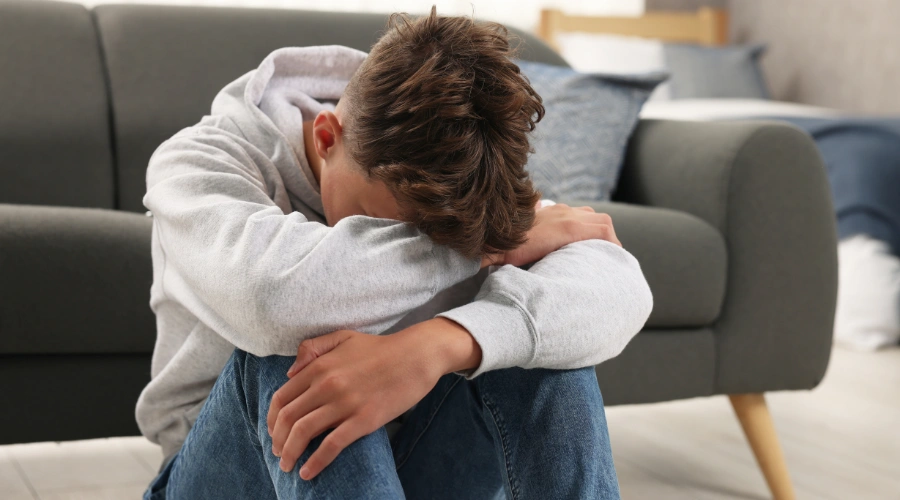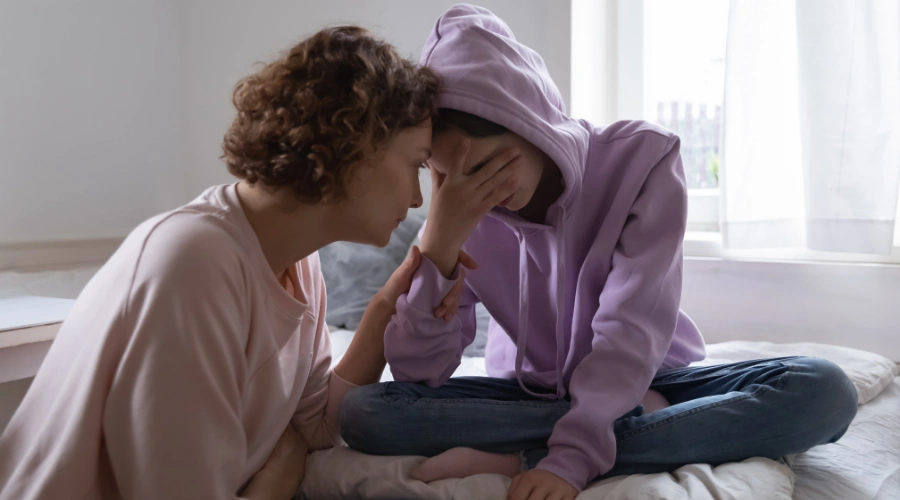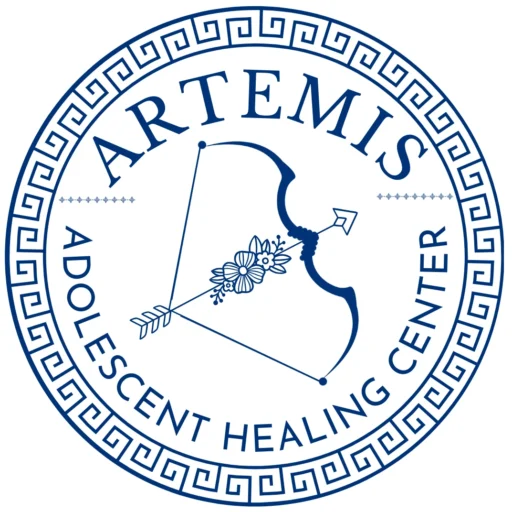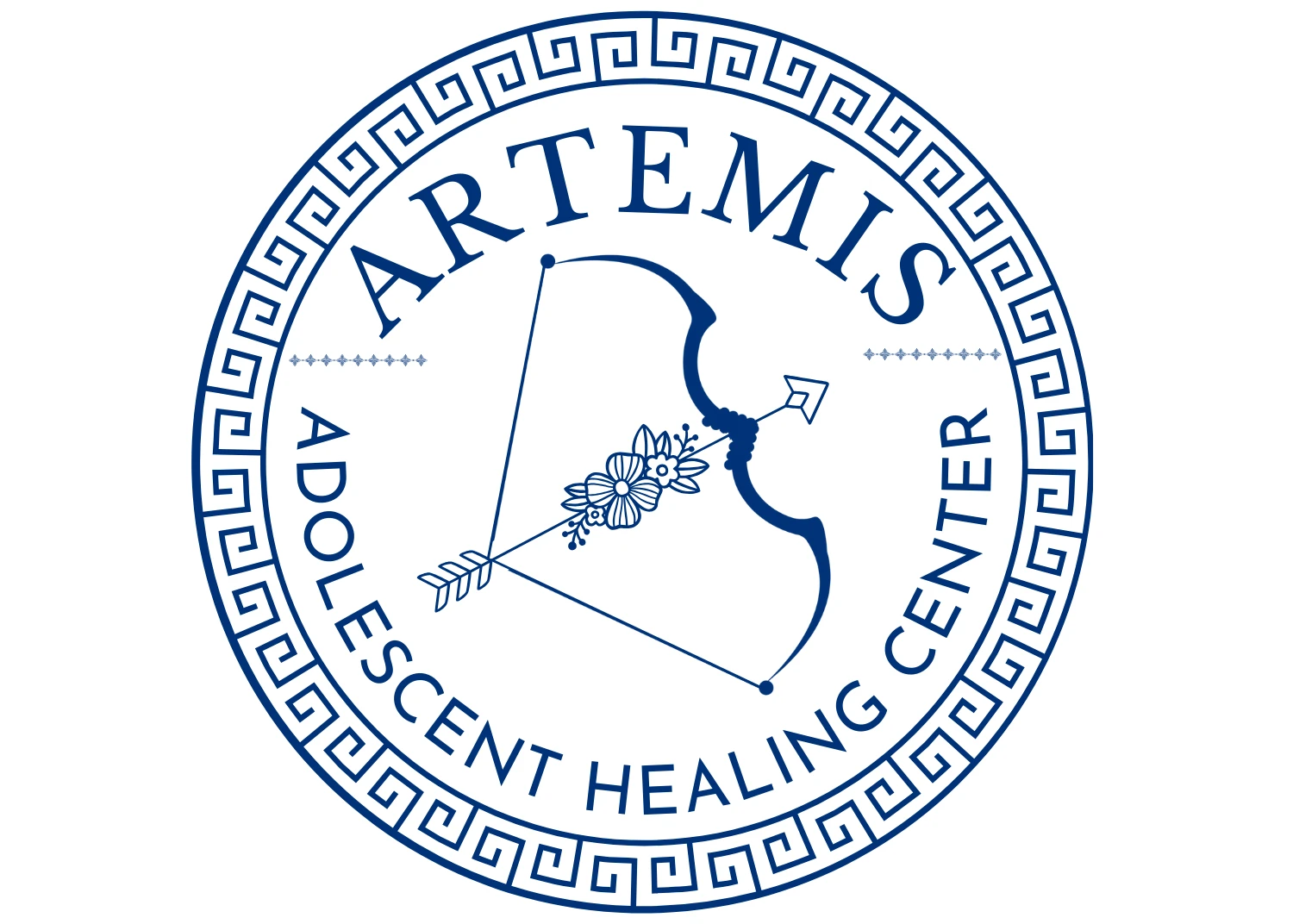Overcoming a Broken Feeling and Finding Help
We’ve all felt broken at some point. It’s a feeling of emotional turmoil; being overwhelmed by sadness and despair. We may feel like we’re not worthy of being loved or capable of achieving anything worthwhile. This isn’t true, but it’s hard to see through it at the time.
It might have started with an event that triggered the feeling, such as the death of a loved one, a breakup, or another form of betrayal. Or, maybe it built up over time, with feelings of inadequacy and other negative emotions underneath.
Whatever the cause, feeling broken can be debilitating and all-encompassing.
And when your child feels broken at a young age, it can feel impossible to see any hope for their recovery, but there are effective ways to help them feel whole again, such as mental health first aid.
Artemis Adolescent Healing Center provides compassionate mental health care for youth and their families. Keep reading to learn more about what feeling broke could mean for teenagers and adolescents and how to overcome it.
Get Confidential Mental Health Assessment
What Does it Mean to “Feel Broken?”
Feeling broken usually refers to feeling emotionally broken. If you describe yourself as feeling this way, you might experience emotions such as overwhelming sadness. You may also struggle to fulfill daily life tasks (e.g., school work or personal hygiene tasks).
It can manifest in physical symptoms, too. For example, fatigue, muscle tension, and trouble sleeping can pair with emotional distress seen in disorders like depression.
People who feel broken often battle low self-esteem: They may think about themselves critically and judge their own worth harshly. Feeling broken can often lead to feelings of loneliness, hopelessness, and isolation.
What Causes Someone to Feel Like a Broken Person?

Feeling like a broken person doesn’t mean that you are one (or that your child is). There’s more than one possible cause of feeling this way.
For example:
- Past experiences. Traumatic events or prolonged stress could be the cause of feeling emotionally broken. Unaddressed trauma can cause emotional scars that impact how you feel about yourself.
- Mental health conditions. Concerns such as depression or anxiety can come with symptoms that are difficult to live with. Any mental health condition can hinder your functioning and quality of life.
- Social isolation. In some cases, feeling broken can stem from feeling disconnected from people or feeling like you don’t belong in the world.
Seeking mental health support can help you work through trauma, mental health conditions, and other possible underlying causes of feeling broken.
How Can I Stop My Child from Feeling Broken?
Feeling broken might not be something that will go away on its own; it needs to be addressed head-on. This can start with making a conscious effort to reach out to get them help, whether that starts with friends, family members, support groups, a teacher, or a professional treatment facility such as our offerings at Catalina.
Seeking support, whether from a therapist or more formal programs, is vital. Through treatments like behavioral therapies, they can help your child recognize negative beliefs contributing to how they feel. From there, you both can work to challenge and change those thoughts.
It’s also important to help them focus on self-care and good habits. First, self-care practices like healthy sleep hygiene habits can be crucial for mood and attitude. Second, this can help a young person better cultivate a feeling of self-love and achievement.
When Trauma Contributes to Feeling Broken

Trauma refers to any deeply distressing or disturbing experience. Traumatic experiences can range from obvious and extreme forms of violence, such as physical abuse or sexual assault, to subtler forms of trauma, such as enduring extensive periods of neglect or being exposed to severe emotional conflicts within the family home.
Trauma is a very personal experience, and its impact can differ greatly. For example, two people may go through the same traumatic event but respond differently. One person may be able to move on relatively easily, while the other may struggle for years and could go on to develop post-traumatic stress disorder (PTSD).
When someone experiences trauma, it can feel like the world as they know it has been uprooted and that their life is never going to return to what it once was. This feeling of helplessness and despair can be overwhelming and have a significant impact on an individual’s mental health.
It’s important to remember that while trauma may cause people to feel broken, it is possible to heal and reclaim our lives. It starts with acknowledging that the trauma occurred and taking steps to address it in a healthy manner.
Get Accredited Treatment Programs at Artemis
A Safe Environment for Your Child to Heal
Our treatment center provides a safe healing environment for the young person in your life who is enduring emotional pain.
Artemis Adolescent Healing Center provides inpatient and outpatient therapy services in Tucson, Arizona.
Therapy can help you:
- Reframe negative thoughts.
- Accept and process emotions.
- Learn skills for healthy relationships (e.g., communication strategies).
- Create positive routines that help you care for your body and mind.
- Build a toolkit of coping skills for emotional pain or stress.
- Increase self-esteem and confidence.
We provide personalized treatment plans for each client.
Treatment Options and Approaches

Looking for mental health care can feel overwhelming, but it doesn’t have to be. At Artemis Adolescent Healing Center, we offer a range of treatment options and use a variety of different approaches.
Residential Inpatient Care for Teens
Attending residential care can be an invaluable tool for young people who are feeling broken. It provides a fresh environment where you can take time away from daily stressors and pressure to focus on healing and restoring their emotional well-being.
The goal of any inpatient program is to support clients with coping strategies, educational tools, and other resources to help you manage your mental health.
Partial Hospitalization and Intensive Outpatient
Our partial hospitalization and intensive outpatient programs for teens and adolescents operate on an outpatient basis. Youth in these programs often live at home with their family members but come to treatment for therapy sessions throughout the week.
Evidence-Based Therapies
We use evidence-based forms of talk therapy for teens. For example, Cognitive Behavioral Therapy (CBT), Acceptance and Commitment Therapy (ACT), Dialectical Behavior Therapy (DBT). These treatments can be incredibly helpful in understanding underlying causes of feeling broken and finding coping skills.
They take place in individual and group therapy sessions. Group therapy sessions are the core of our programs, providing an opportunity to explore feelings and behaviors in a supportive setting, guided and supervised by a therapist.
Similarly, all clients get an assigned individual therapist to work with one-on-one. These sessions give you a space to focus on your personal goals and talk about things you might not want to share in groups.
In addition to individual and group therapy sessions, we use additional treatments like creative therapies (e.g., art therapy), outdoor activities, and physical activity. Family therapy sessions are highly encouraged.
Your Child Does Not Have to Feel Broken Inside: Reach Out to Artemis Today

Your child doesn’t have to go on with living feeling broken. If they have experienced difficult life events, feel overwhelmed, or are struggling with another concern, like self-critism, anxiety, or depression, consider Artemis Adolescent Healing Center for support.
Having access to mental health professionals and a safe, calming environment to heal can help your child (and your whole family) to process difficult life events, boost your self-esteem, lift self-doubt, build healthy interpersonal relationships again, and find joy.
Contact us now for a confidential discussion of options for the young person in your life.
Up To 100% of Rehab Costs Covered By Insurance
FAQs About Feeling Broken as a Young Person
What does it mean when you feel broken as a teenager?
Feeling broken as a young person can refer to a lot of different things. It could be that you experience persistent emotional exhaustion and have trouble completing daily life tasks, that you have mood swings or difficult feelings you can’t seem to control, or that you’re going through a hard time (e.g., a broken heart).
How do I know if my child feels like a broken person?
Rest assured, even if they are feeling broken, it does not mean that your child is a ‘broken person.’ In other words, they are not broken; even if your teenager is having an extremely hard time, healing is possible. If adolescents are having a difficult time emotionally for any reason, seeking support from a mental health professional can help.
Why does my teenager suddenly feel sad and cry for no reason?
There are many mental health concerns for teens, like depression, that can cause symptoms like feeling sad or crying with no other marked cause. Depression is a common disorder in youth and adults, and it is treatable.
Why does my child feel like they have no emotions anymore?
On the other side of excessive crying and feelings of sadness, some young people experience emotional numbness when going through a difficult time or living with a condition like depression. Treatment can help.
How can I help my child heal when they are feeling broken?
Working on the relationship your adolescent or teen has with themselves, which is often a primary focus in therapy, can be crucial to support them moving forward when they feel broken.
References
- Trauma and violence – what is trauma and its effects?. SAMHSA. (n.d.-d).
- Acceptance and commitment therapy for teens. Child Mind Institute. (2024, February 29).
- U.S. National Library of Medicine. (2022, June 2). In brief: Cognitive behavioral therapy (CBT). InformedHealth.org [Internet].
- Chapman, A. L. (2006, September). Dialectical behavior therapy: Current indications and unique elements. Psychiatry (Edgmont (Pa. : Township)).






